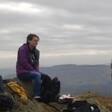Arts and Culture 8 March 2014

At the beginning of March, Brown University in Providence, Rhode Island hosted what a number of participants called “the biggest gathering of scholars on Palestine in decades.”
Organized under the aegis of Professor Beshara Doumani (author of Rediscovering Palestine, a ground-breaking history of eighteenth and nineteenth-century Nablus), “New Directions in Palestinian Studies” was a conference which highlighted current work on the history, economy and politics of Palestine, but also challenged academics studying Palestine and the Palestinians to consider how they see their work and their discipline.
As Doumani noted in his opening address, the conference was part of a push to “professionalize” Palestinian studies as a field of study, providing support for new academics working in the area and thinking about its uses and priorities.
He also stressed the deliberate use of the term “Palestinian Studies” rather than “Palestine Studies” – the latter may be familiar to some readers from the title of the main journal and institute in the field.
The different coinage, he suggested, was important in including the experiences of refugee and diaspora Palestinians alongside subjects associated directly with the geopolitical entity of Palestine.
Exploring Palestine’s economic history
Although attendees included such big names in Palestinian and wider Middle Eastern studies as Rashid Khalidi, Samia Botmeh, Elias Khoury, Zachary Lockman, Joel Beinin, Bashir Abu Manneh, Lila Abu Lughod and Brinkley Messick, the stage – with some exceptions – was mainly given over the younger scholars.
Stand-out papers from amongst these included:
-
Leena Dallasheh on workers’ organizing in Nazareth in the 1940s;
-
Susynne McElrone on the nineteenth-century history of villages in the Hebron region;
-
and Sreemati Mitter on the Israeli attempt to freeze all Palestinian bank accounts immediately after the Nakba, and how an early act of ‘lawfare’ by Palestinian lawyers against British banks forced their release.
Amongst more established scholars, there were also significant contributions from Leila Farsakh (University of Massachusetts), calling for a return to using the concept of colonialism in analyzing the economic history of Palestine, and the rediscovery by Sherene Seikaly (American University in Cairo) of Iqtisadiaat, a British Mandate era economics magazine which reveals some of the ways in which the Palestinian business class of the 1930s were thinking about themselves and their future nation.
And whilst all of these papers might be seen as relevant to present-day campaigning on Palestine – in that they defy stereotypes about Palestinian history and culture and highlight the richness and complexity of Palestinian society – other studies very much brought home the links between “academic” work and activism.
Ahmad Amara, Munir Fakher al-Din and Martin Bunton’s minute scrutiny of land registration and ownership patterns in pre-Nakba Palestine is a vital part of defending attempts by the Israeli state and settlers to lay claim to land in modern-day Palestine and present-day Israel.
Future plans?
Questions remain, after a (closed) final session discussing the future of this “New Directions” initiative. This first event (and this is intended as an observation, not a criticism) was dominated by scholars and students from the northeast of the United States.
Although an impressive number of the attendees and of the academics presenting were Palestinian, even those coming from Palestine for the event often had connections with universities in New York or the wider north-east.
It goes without saying that there are many fine scholars and much exciting research on Palestine located in the Middle East, Europe, and other parts of the world. It would be great to see future conferences covering a wider geographical spread.
The political economy focus of this conference was also entirely justified, given (as some speakers noted) the tendency in recent years for Palestine to be written about in the language of identity and culture rather than socioeconomic concerns.
But again, where does this leave researchers on other aspects of Palestinian studies in relation to the “New Directions” initiative? Will future events explore other fields?
Hopefully the initiative’s website will reveal new plans.
Tags
- Brown University
- New Directions in Palestinian Studies
- academia
- Beshara Doumani
- Rashid Khalidi
- Elias Khoury
- Bashir Abu-Manneh
- Raja Khalidi
- Zachary Lockman
- Journal of Palestine Studies
- Samia Botmeh
- Joel Beinin
- Brinkley Messick
- Leena Dallasheh
- Susynne McElrone
- Sreemati Mitter
- Sherene Seikaly
- Leila Farsakh
- history
- economy





